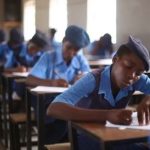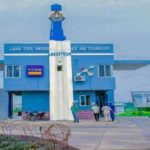President Bola Tinubu’s declaration of a state of emergency in Rivers State on Tuesday has reignited the push for self-determination among the Ijaw ethnic group in the Niger Delta.
The President of the Ijaw National Congress (INC), Prof. Benjamin Okaba, described the move as a “slap” on the Ijaw people. Speaking to Vanguard, he said the group would convene a wider stakeholders’ meeting to discuss the implications of the decision and reassess their stance within the Nigerian framework.
Okaba criticized the declaration as hasty, arguing that President Tinubu should have acted on public calls to rein in the Minister of the Federal Capital Territory, Nyesom Wike, who he accused of fueling the crisis in Rivers State.
“Wike has openly declared that he would make governance impossible for Governor Siminalayi Fubara unless he concedes control of all local government areas and agrees not to run for re-election in 2027,” Okaba stated.
He contended that Wike’s actions were aimed at capturing state power and resources, at the expense of the people. Okaba also questioned the President’s decision to remove only Governor Fubara while allowing Wike and his allies in the federal government to remain in office.
Retired Delta State Customary Court President, Miakpor Emiaso, also criticized Tinubu’s approach, stating that the emergency declaration appeared politically biased. He noted that Tinubu’s speech failed to acknowledge the external influences behind the crisis, particularly Wike’s role.
“If the President wants to be fair, he should remove Wike from his current position, or else Wike will continue to wield influence over the administrator appointed to govern the state,” Emiaso said. He also argued that the six-month duration of the emergency rule was excessive.
Former Ijaw Youth Council (IYC) President, Dr. Chris Ekiyor, expressed shock over the decision, describing it as a sign that the President was yielding to Wike’s influence. He blamed the judiciary for failing to uphold electoral laws in the case of the 27 defected lawmakers and questioned why the federal government linked Fubara to recent explosions in the state.
Former presidential candidate, Dr. Gbenga Olawepo-Hashim, also weighed in, calling for a peaceful resolution to the crisis. He warned that the ongoing political power struggle between Fubara and Wike could destabilize the state.
Dr. Hashim pointed out that past emergency declarations in Nigeria were prompted by large-scale violence and security threats, unlike the Rivers crisis, which he described as purely political. He urged President Tinubu to handle the matter with fairness and avoid actions that could worsen the country’s political instability.
The Nigerian Bar Association (NBA) and the Peoples Democratic Party Governors’ Forum (PDPGF) have also condemned the emergency declaration, warning that it sets a dangerous precedent for Nigerian democracy.
As reactions continue to trail the development, concerns remain over its impact on Rivers State’s governance and the broader political landscape.




